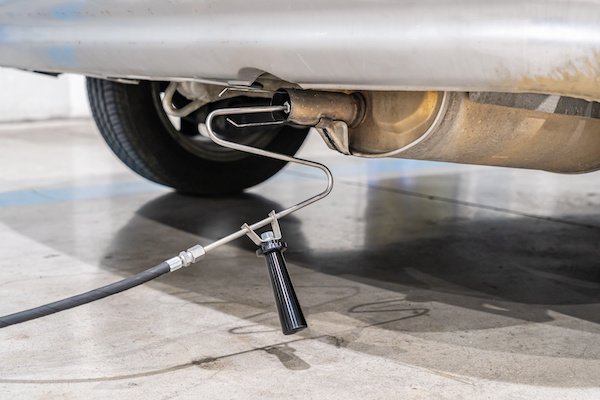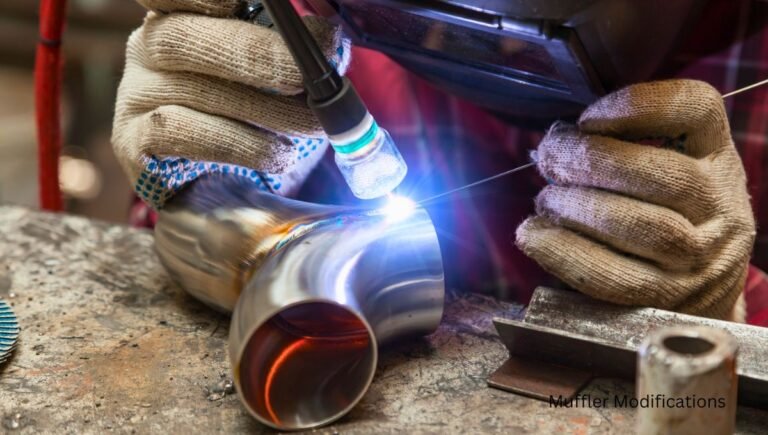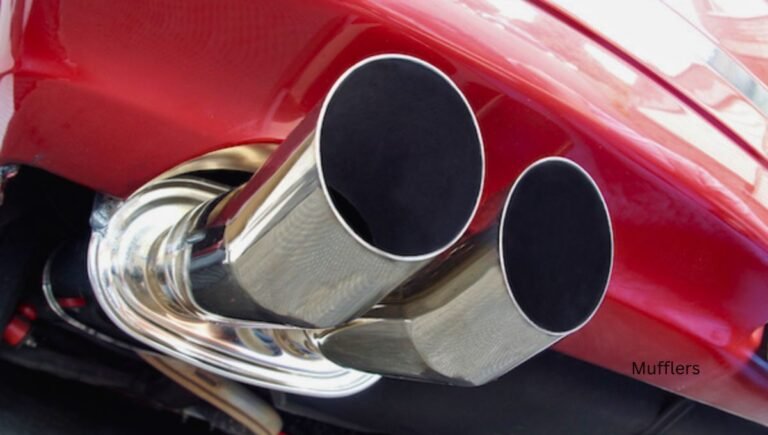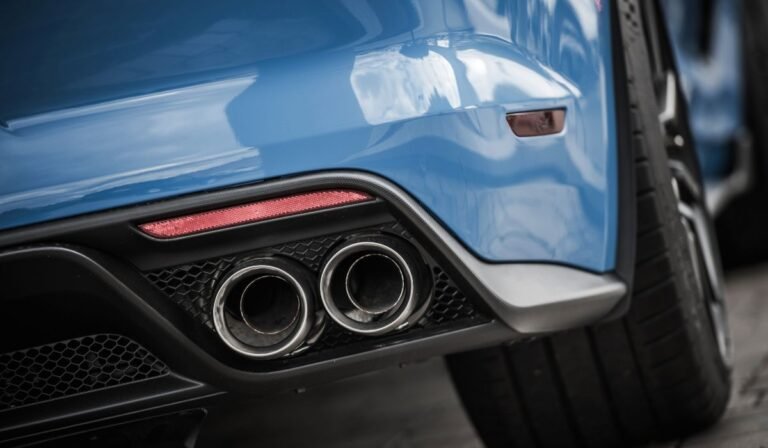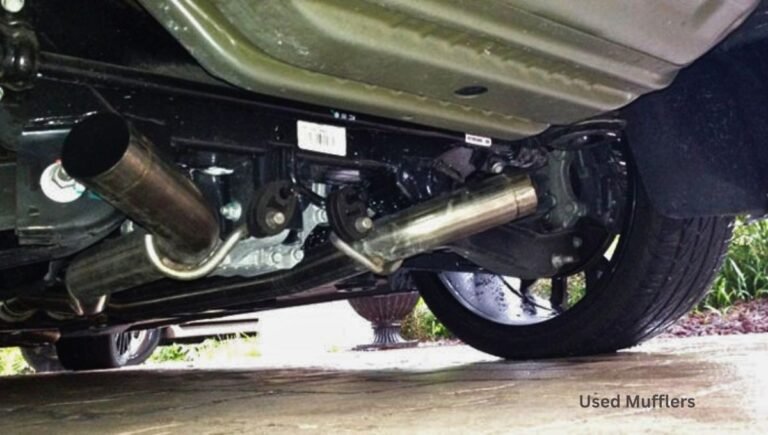Can You Drive a Car Without Muffler? Essential Insights
Yes, you can drive a car without a muffler, but it is illegal and can lead to noise pollution. Operating a vehicle without a muffler can also result in decreased engine performance.
Driving a car without a muffler may seem like a temporary solution, but it can have serious consequences. Not only is it against the law in most places due to noise pollution regulations, but it can also lead to long-term damage to your vehicle’s engine.
In this blog post, we will explore the importance of mufflers in vehicles, the legal implications of driving without one, and the potential risks and consequences of doing so. By the end, you will have a comprehensive understanding of why mufflers are essential components of a vehicle’s exhaust system.
Introduction To Mufflers In Car Mechanics
When it comes to understanding the mechanics of a car, the role of a muffler is often overlooked. However, the muffler plays a crucial part in the overall functioning of the vehicle. In this section, we will delve into the significance of mufflers in car mechanics and explore the potential consequences of driving without one.
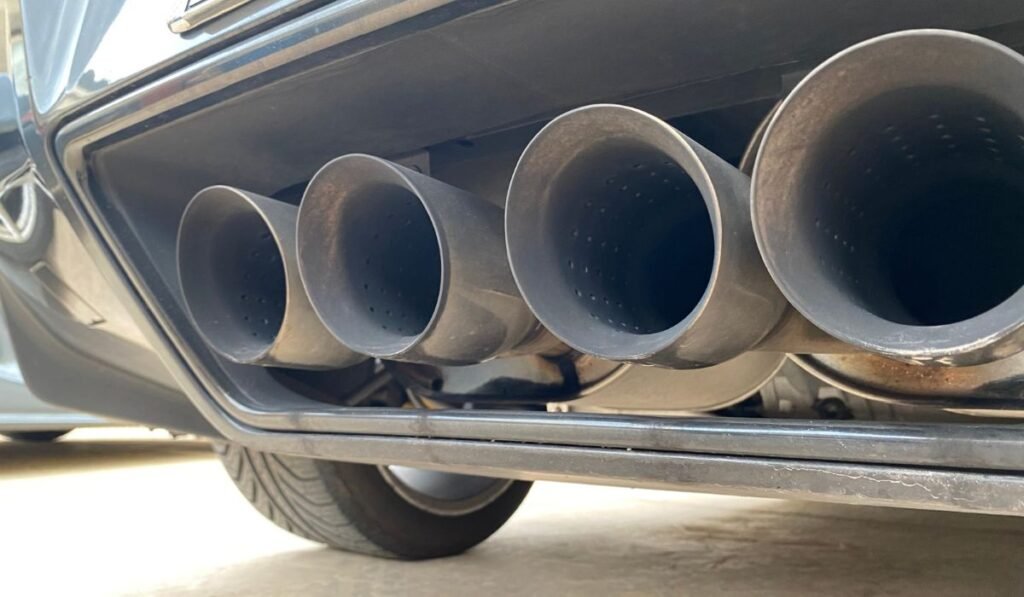
Purpose Of A Muffler
A muffler, also known as a silencer, is an essential component of a car’s exhaust system. Its primary function is to reduce the noise produced by the engine during the combustion process. The muffler achieves this by using a series of chambers and baffles to muffle the sound waves. Additionally, it helps to minimize the emission of harmful gases into the environment.
Potential Consequences Of Driving Without One
Driving a car without a muffler can lead to a range of adverse effects. These include increased noise pollution, potential legal repercussions for violating noise ordinances, and the risk of inhaling harmful exhaust fumes. Furthermore, the absence of a muffler can result in damage to other components of the exhaust system, leading to costly repairs.
Legal Implications Of Muffler Removal
Driving a car without a muffler can have serious legal implications. The loud noise produced may violate noise pollution laws, leading to fines or even vehicle impoundment. It’s crucial to ensure your vehicle complies with regulations to avoid legal consequences.
Noise Pollution Laws
Driving a car without a muffler is not only a nuisance to others but also illegal in most states. Noise pollution laws regulate the amount of noise a vehicle can produce, and mufflers are an essential component in reducing noise levels.
In some states, the noise level allowed is as low as 75 decibels, and mufflers help to ensure that vehicles remain within the acceptable range. By removing the muffler, the vehicle becomes significantly louder, and you may end up facing hefty fines or even having your license suspended.
Vehicle Compliance Regulations
Apart from noise pollution laws, there are also vehicle compliance regulations that require all vehicles on the road to meet certain standards. One of these standards is the requirement to have a muffler. The muffler is an essential component of a vehicle’s exhaust system, and its removal can affect the vehicle’s performance.
A car without a muffler produces a louder exhaust note, which may attract unwanted attention from law enforcement officers. Additionally, removing the muffler may also affect the engine’s backpressure, leading to decreased fuel efficiency and power output.
In conclusion, driving a car without a muffler has several legal implications, including fines and license suspension. Additionally, removing the muffler affects the vehicle’s compliance with noise pollution and vehicle compliance regulations. It is essential to ensure that your vehicle is equipped with a muffler to avoid any legal issues and maintain your vehicle’s performance.
Impact On Car Performance
Driving a car without a muffler can significantly impact car performance. The muffler plays a crucial role in reducing noise levels and maintaining back pressure for optimal engine function. Without it, the vehicle may experience decreased power and efficiency.
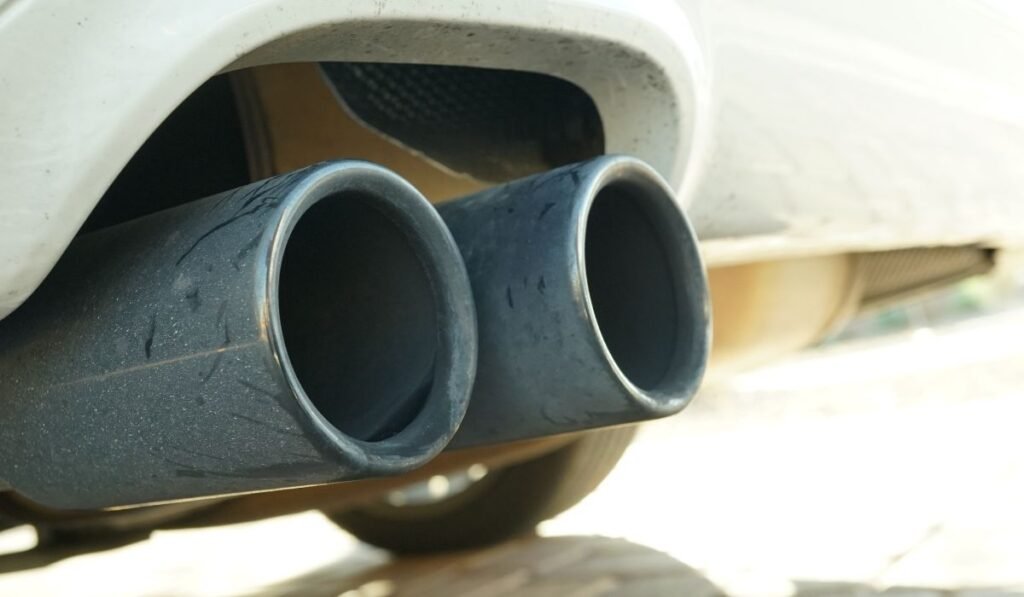
Impact on Car Performance:
Exhaust Flow Dynamics
The exhaust flow dynamics of a car without a muffler can significantly impact its performance. The absence of a muffler can alter the exhaust flow dynamics, leading to changes in back pressure and exhaust gas velocity. This alteration can affect the overall performance of the vehicle, including its efficiency and power output.
Engine Efficiency and Power
Without a muffler, the engine’s efficiency and power can be notably affected. The exhaust flow dynamics, including back pressure and gas velocity, play a crucial role in maintaining the optimal performance of the engine. The absence of a muffler can disrupt this balance, leading to decreased engine efficiency and reduced power output.
In a table format, the impact of driving a car without a muffler on performance can be summarized as follows:
In summary, driving a car without a muffler can significantly impact its performance, particularly in terms of exhaust flow dynamics, engine efficiency, and power output.
Safety Concerns And Risks
Driving a car without a muffler may seem like a tempting idea to some, but it comes with several safety concerns and risks that should not be ignored. In this section, we will discuss two major concerns associated with driving a car without a muffler: increased fire hazard and toxic exhaust exposure.
Increased Fire Hazard
One of the main safety concerns when driving a car without a muffler is the increased risk of fire. The muffler plays a crucial role in reducing the temperature of the exhaust gases emitted by the engine. Without a muffler, these gases can reach extremely high temperatures, posing a significant fire hazard.
The absence of a muffler means that the hot exhaust gases can come into contact with flammable materials underneath or near the vehicle. This can include dry grass, leaves, or debris on the road. Even a small spark from the exhaust system can ignite these materials and quickly lead to a fire.
Moreover, the lack of a muffler can also result in the direct exposure of other components of the vehicle, such as the fuel lines or electrical wiring, to the high-temperature exhaust gases. This further increases the risk of fire, as these components are susceptible to heat damage and can easily catch fire.
Toxic Exhaust Exposure
Another significant safety concern when driving a car without a muffler is the exposure to toxic exhaust fumes. The muffler is designed to reduce noise levels and filter harmful gases from the exhaust before they are released into the environment. Without a muffler, these toxic gases, such as carbon monoxide, nitrogen oxide, and hydrocarbons, are emitted directly from the vehicle.
Exposure to these toxic gases can have serious health consequences. Carbon monoxide, for instance, is a colorless and odorless gas that can be deadly in high concentrations. It can cause headaches, dizziness, nausea, and in extreme cases, even lead to unconsciousness or death. Nitrogen oxide and hydrocarbons can also contribute to respiratory problems and can have detrimental effects on the environment.
It is important to note that toxic exhaust exposure not only affects the driver and passengers of the vehicle but also poses a risk to pedestrians and other motorists on the road. The inhalation of these toxic fumes can impair judgment, concentration, and reaction times, increasing the likelihood of accidents and injuries.
Considering the increased fire hazard and the health risks associated with toxic exhaust exposure, it is clear that driving a car without a muffler is not only unsafe but also illegal in many jurisdictions. It is crucial to ensure that your vehicle’s muffler is in good working condition to protect yourself and others on the road.
Environmental Considerations
When it comes to driving a car without a muffler, there are various environmental considerations to keep in mind. The muffler plays a crucial role in reducing noise pollution and controlling emissions, making it an essential component of any vehicle.
Emission Control
The muffler is designed to regulate and reduce the emissions produced by a car’s engine. It contains a series of chambers and baffles that help to break up and muffle the sound waves created during the combustion process. Additionally, the muffler has catalytic converter elements that aid in reducing harmful pollutants such as carbon monoxide, nitrogen oxides, and hydrocarbons.
Contribution To Air Pollution
Driving a car without a muffler can significantly contribute to air pollution. Without the proper muffler in place, the engine’s exhaust gases are released directly into the atmosphere without any filtration or noise reduction. This can lead to an increase in harmful emissions, negatively impacting air quality and the environment.
Furthermore, the absence of a muffler can result in excessive noise pollution, causing disturbances to both humans and wildlife. Excessive noise pollution can disrupt ecosystems, disturb animals, and even have adverse effects on human health, including stress, sleep disturbances, and hearing problems.
Therefore, it is crucial to ensure that your vehicle’s muffler is in good condition and functioning properly. Regular maintenance and prompt repairs should be prioritized to minimize environmental impact and contribute to a cleaner and healthier environment.

Noise Levels And Social Etiquette
When it comes to driving a car without a muffler, it’s essential to consider the noise levels and social etiquette. The presence or absence of a muffler can significantly impact the noise produced by a vehicle, which can affect not only the driver’s comfort but also the surrounding community. Let’s explore the implications of driving a car without a muffler in terms of noise levels and social etiquette.
Community Disturbance
Driving a car without a muffler can lead to excessive noise pollution, causing disturbance in residential areas and public spaces. The loud and disruptive sound emitted by the vehicle can disrupt the peace and tranquility of the community, leading to potential complaints from residents and pedestrians. This can result in strained neighborly relations and may even lead to legal repercussions due to noise ordinance violations.
Impact On Driving Comfort
The absence of a muffler can significantly impact the driver’s comfort and overall driving experience. Excessive noise levels within the vehicle can cause discomfort, distraction, and fatigue, leading to a less safe and enjoyable driving environment.
Prolonged exposure to high noise levels can have detrimental effects on the driver’s mental and physical well-being, affecting their ability to focus and react appropriately while driving.
Cost-benefit Analysis
A cost-benefit analysis can help determine if driving a car without a muffler is worth it. It considers the expense of replacing the muffler versus the potential fines for driving without one. This analysis can help make an informed decision about the best course of action.
Short-term Savings Vs. Long-term Costs
Driving without a muffler may save money initially but leads to expensive future repairs.
Potential Fines And Repairs
Operating a car without a muffler can result in costly fines and mandatory repairs.
Alternatives And Solutions
Driving a car without a muffler can lead to various issues. It can result in excessive noise pollution, potential damage to the engine, and even legal consequences. It’s important to explore alternative solutions such as repairing or replacing the muffler to ensure a smooth and compliant driving experience.
When driving a car without a muffler, you may encounter loud noise and potential legal issues. Fortunately, there are alternatives and solutions to consider.
Aftermarket Mufflers
Consider installing an aftermarket muffler for improved sound reduction and performance.
Regular Maintenance Tips
Maintain your muffler system regularly for optimal functionality and noise control.
Conclusion
After carefully considering the pros and cons of driving a car without a muffler, it’s clear that it’s not a good idea. Not only is it illegal in many places, but it can also damage your car and harm the environment.
The loud noise can also be a nuisance to others and cause disturbance. It’s important to always make sure your car is properly maintained and equipped with a muffler to ensure safety and compliance with regulations.

